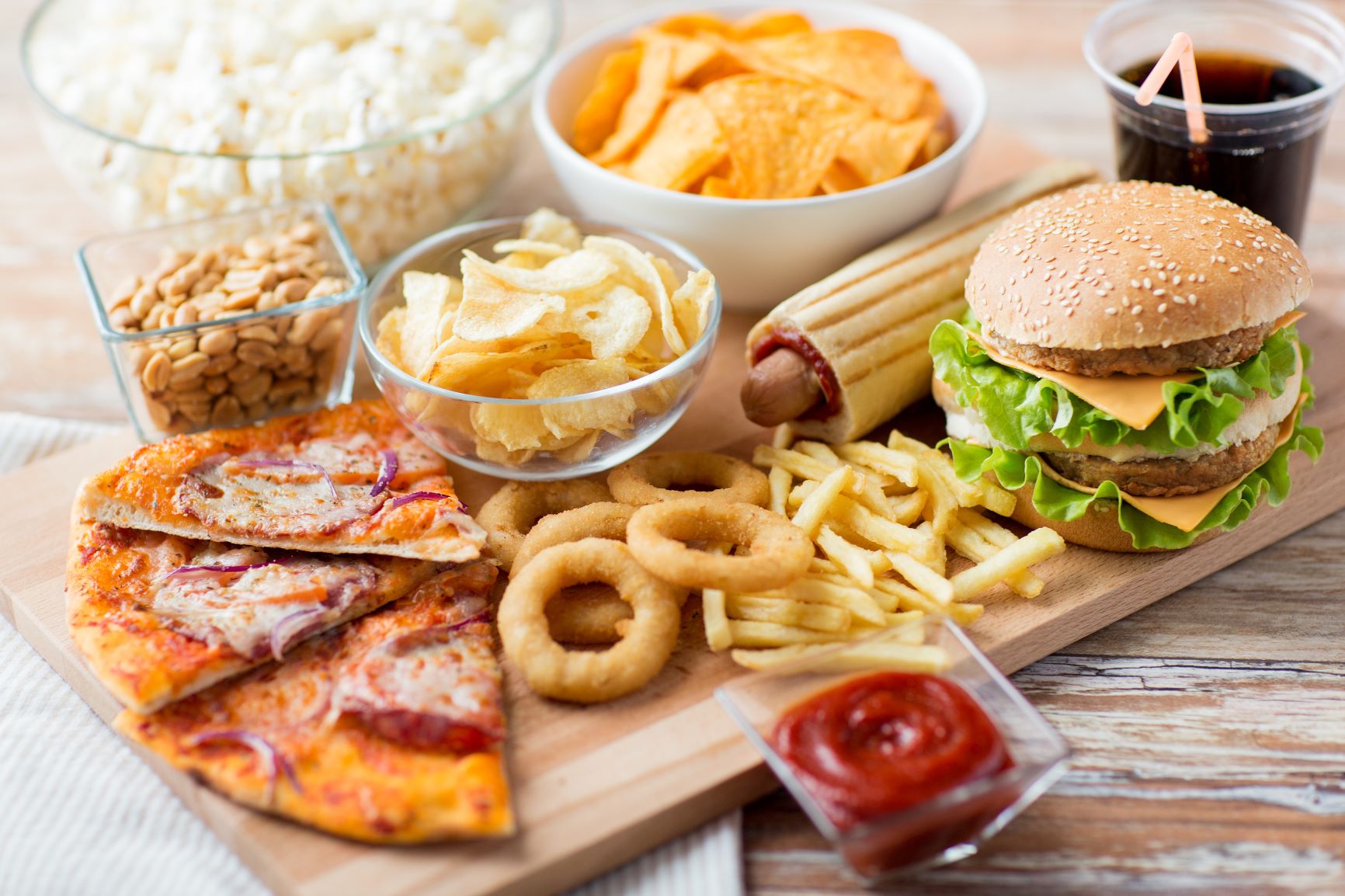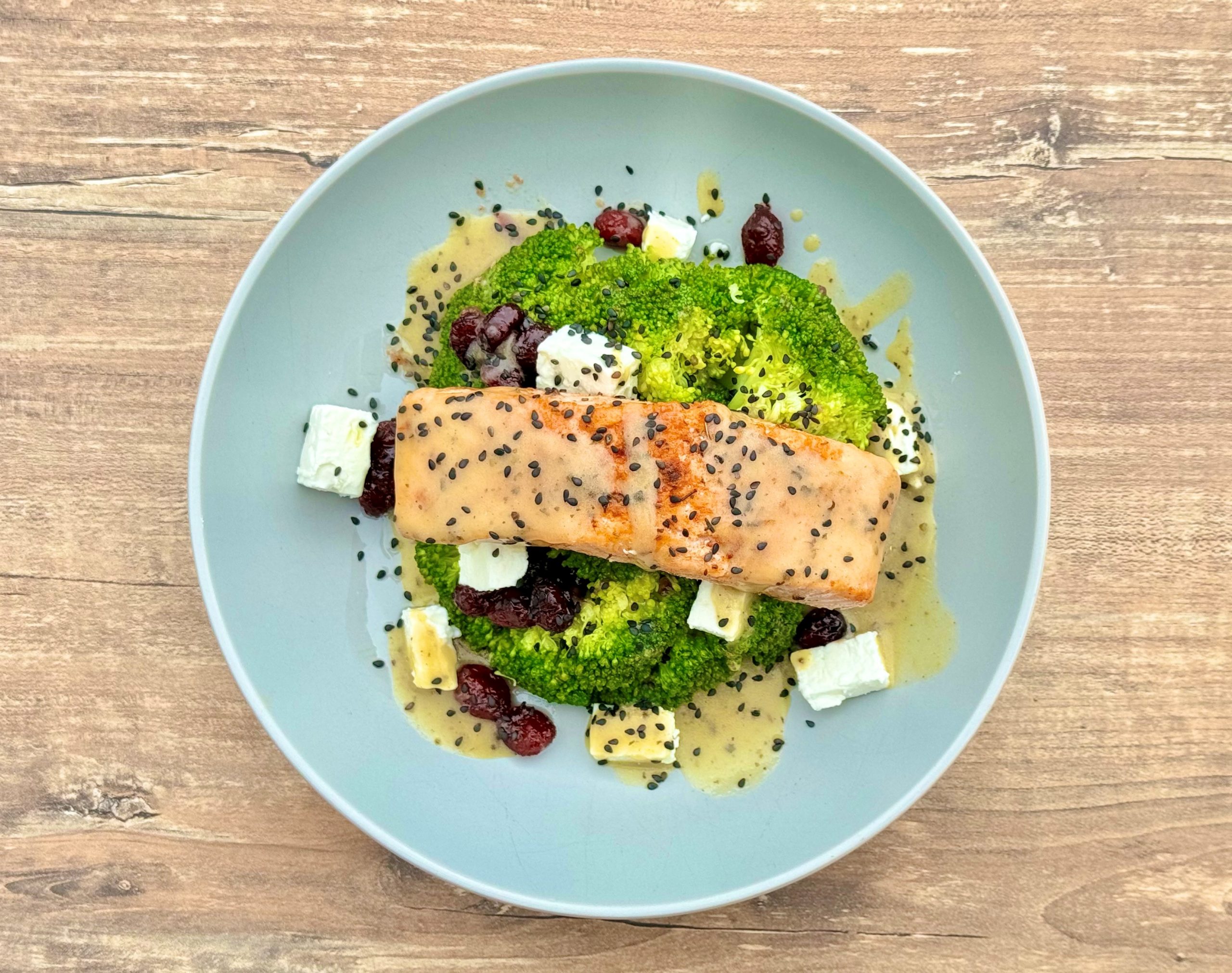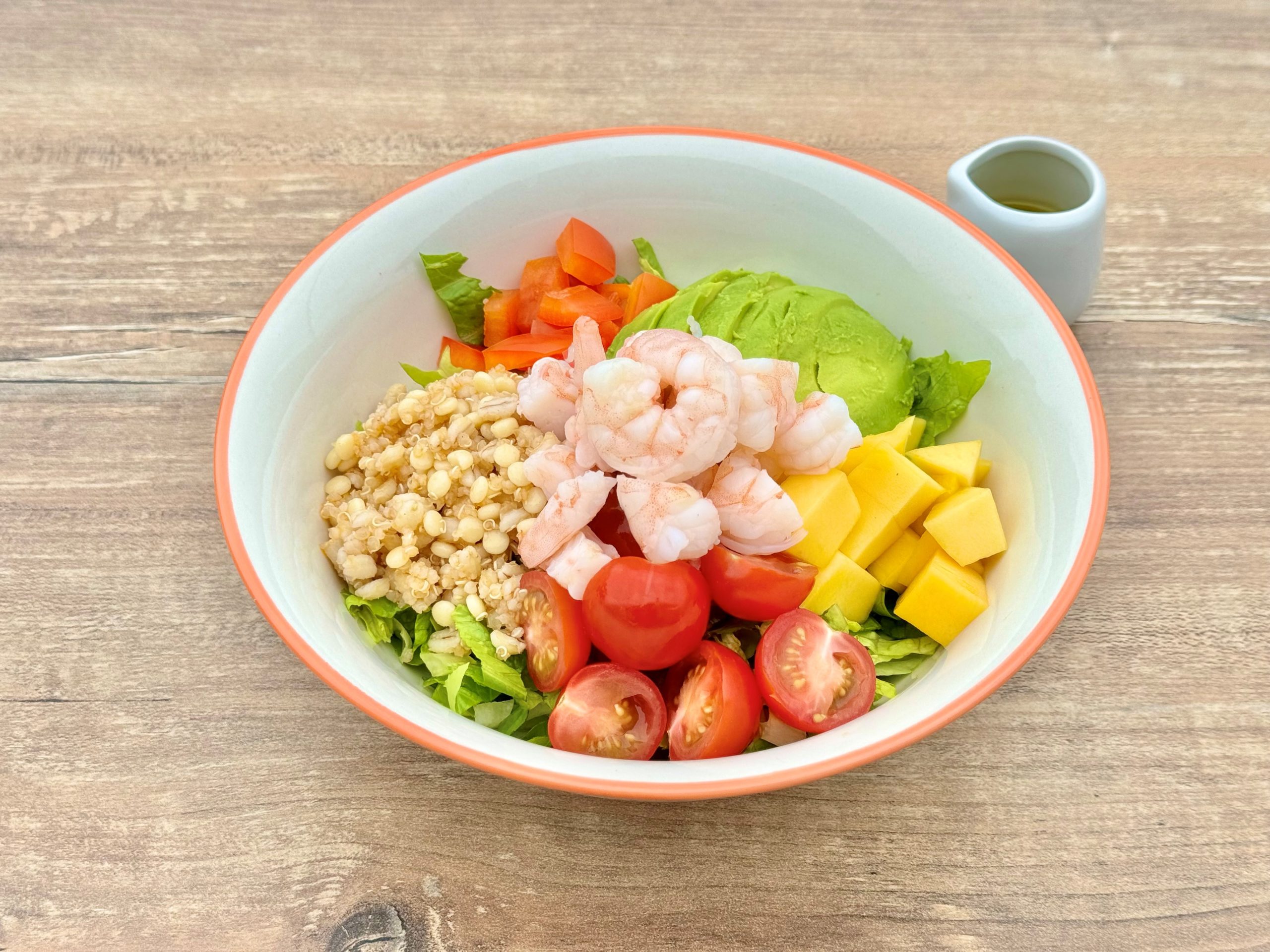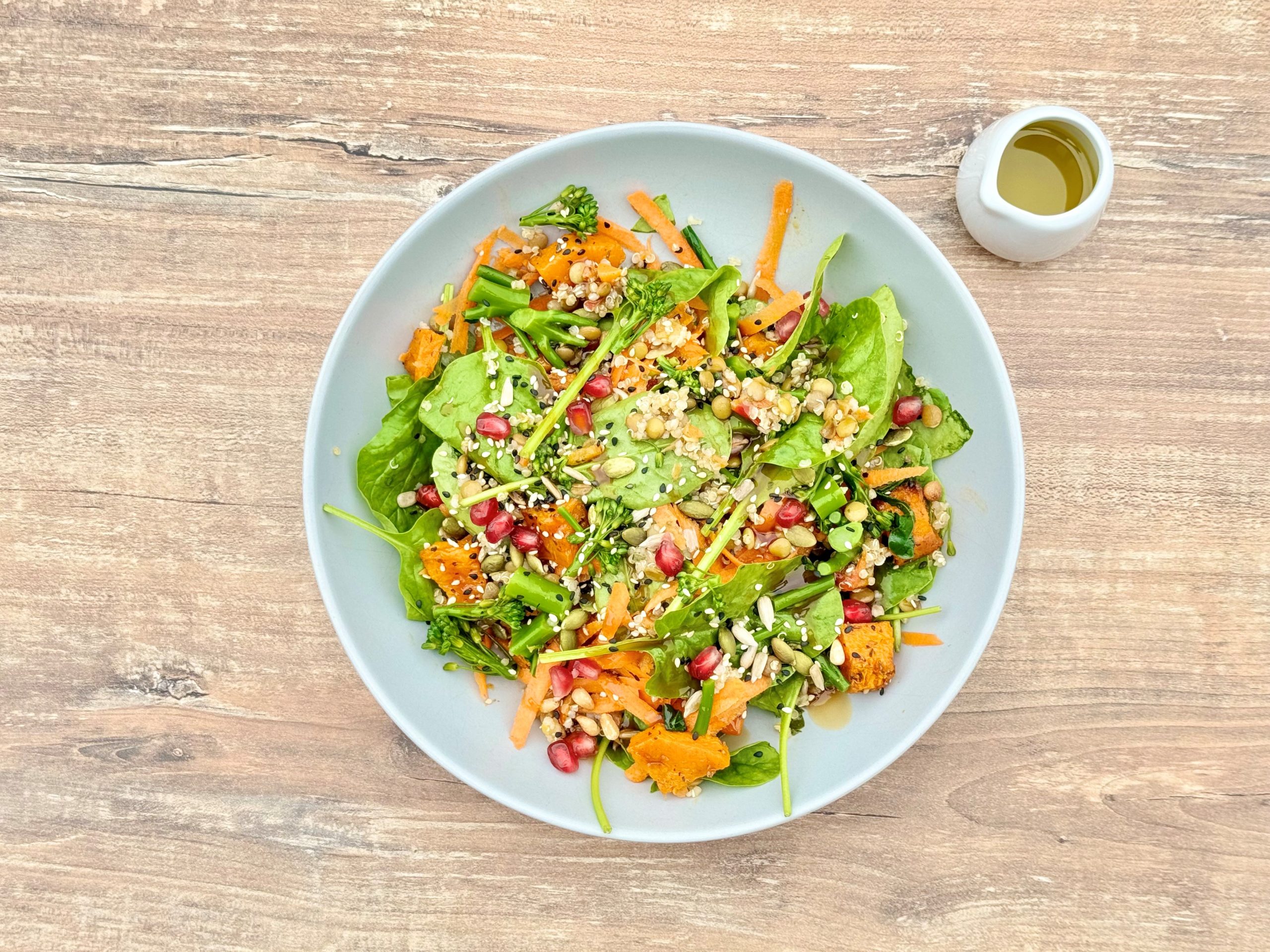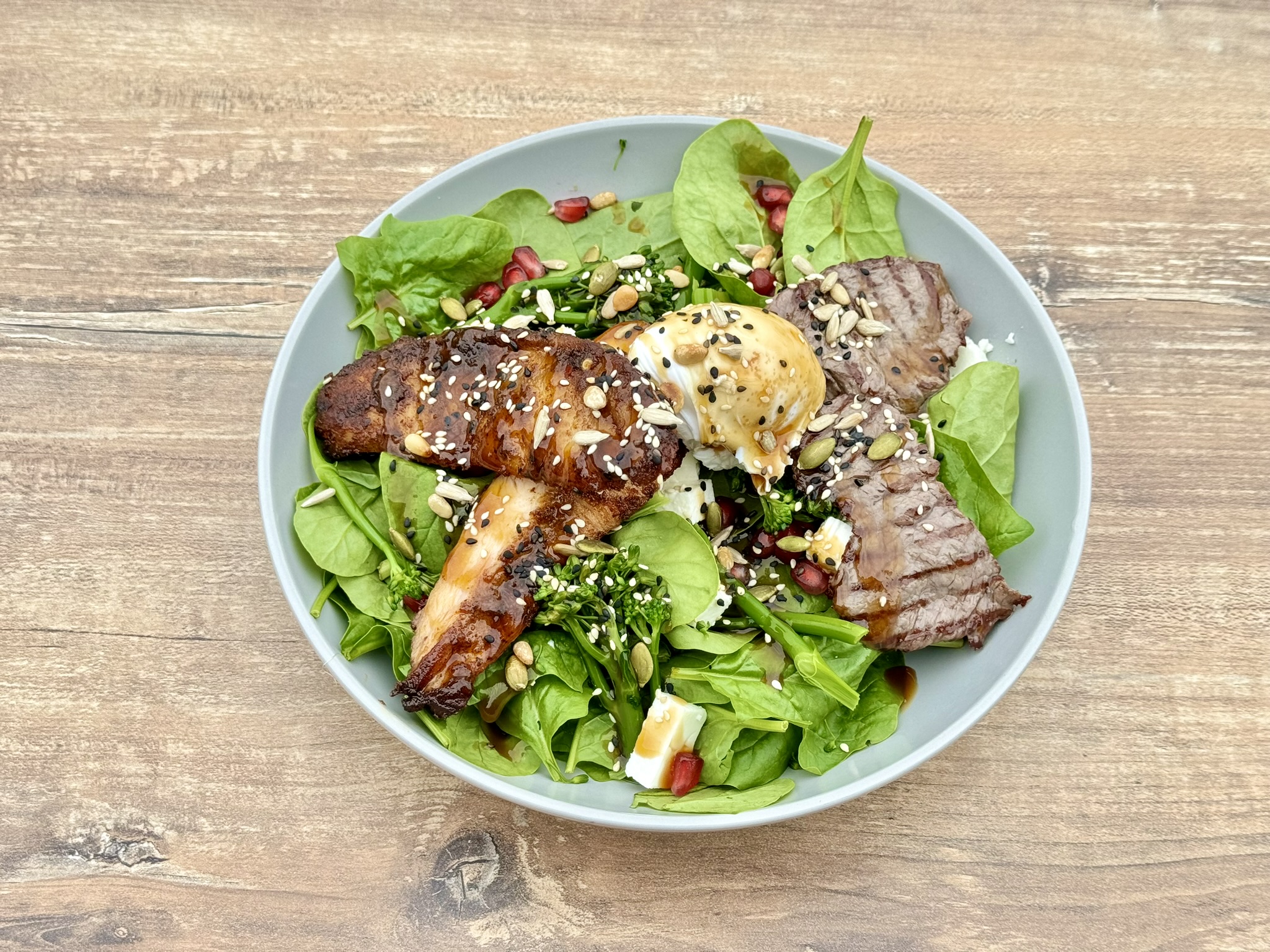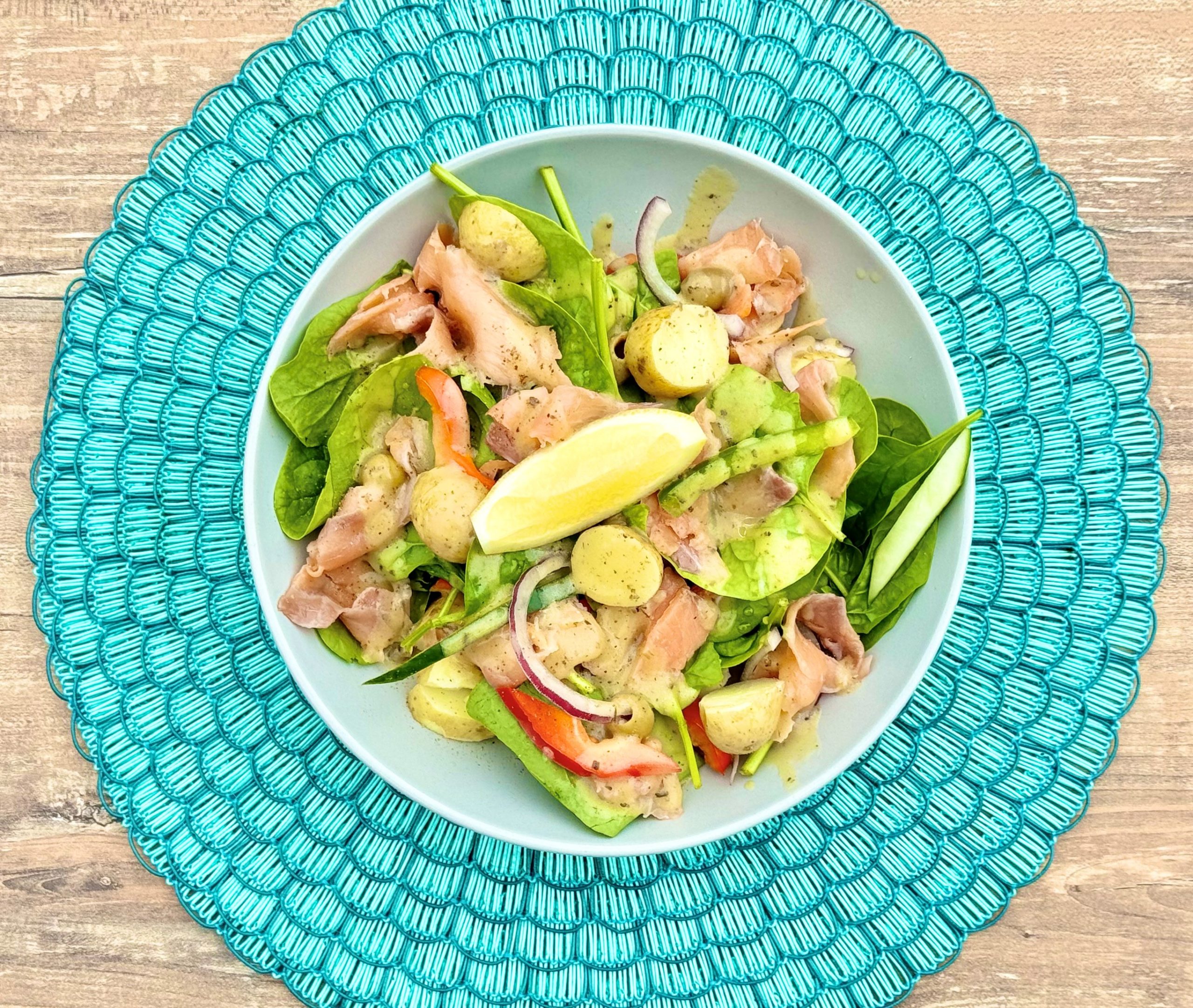How I quit weekend overeating.
5 surprising strategies that helped me ditch the bingeing, the guilt, and the extra weight.
In my world, weekend overeating (and over-boozing) was ‘just what people did.’ It felt good to let loose… until I got sick of the regret, guilt, bloating, and extra pounds. That’s when I discovered the surprising *real* reason behind my Friday-to-Sunday gorging. Here are the 5 strategies I used to ditch the habit (and the weight) for good.
I used to overeat like a boss.
True story. Sure, I was “good” all week. But weekend overeating? That was my jam. Every Friday around 5pm, as I waited for the bus after work, I’d start to salivate. The end of the work week meant red wine, pizza, a giant bag of chips, and bad movies. It was a Friday ritual. Sometimes I’d call my husband while waiting. What should we get on the pizza? They do that really good pesto sauce with goat cheese. What about extra sausage? Friday night, when I got to eat whatever I wanted, was the highlight of my week. My job was stressful. The commute was long. Coming home, dumping my stuff, and crushing some fast food and booze was my way of unwinding.
However…
Friday became a gateway drug to the rest of the weekend.
I ate big breakfasts on Saturdays before I went to the gym, and big lunches afterwards. I went out on Saturday nights for drinks and a heavy meal. Or stayed home for more takeout and movies on the couch. Then came Sunday brunches, of course. And picking up some of those amazing cookies at that little coffee shop on Sunday walks. And, naturally, you close weekends with a big Sunday roast… because it’s Sunday. Because it’s Friday. Because it’s Saturday. Because it’s Sunday. Which bled into: Because it’s Thursday night. Technically close enough to Friday. Friday-adjacent, and good enough. In my head, the weekend was a time where “normal rules” didn’t apply. It was a time to relax, put my feet up, and let the soothing crunching and chewing take me away. I’m not talking about compulsive bingeing here. That’s where you have episodes of eating without thinking, almost like you’re on autopilot.(People with binge eating disorder feel disassociated while overeating and that can be hard to break without help from a doctor or therapist.)But for me, it wasn’t that. Rather, mine was the kind of overeating where you’re all-in: a convenient, stress-fuelled, often social, habit. My social circle was happy to support it. I had binge buddies and pizza pals. As far as I was concerned, going hog wild was just what people did on weekends. Looking back, I also know that in the face of a stressful job and overwhelming responsibilities my overeating ritual made me feel sane and human.
After a while, though, weekend overeating started to suck.
As every overeater knows, the joy of runaway indulgence comes with consequences. You feel physically uncomfortable, bloated, perhaps even sick to your stomach. Mentally, you feel crappy. Guilty. Regretful. Maybe angry at yourself. Or just angry in general. And while weight fluctuation is inevitable when you’re trying to get in shape, if you want to stay healthy and fit, or make fitness and health a permanent part of your lifestyle, then weekend overeating can sabotage your goals. Aside from the obvious extra body fat or stalled performance, there’s other unwanted stuff. Like your joints hurt because of inflammation from last night’s junk food. Or you’re too full to run properly. Or you lie awake in bed with meat sweats, huffing in small breaths around the food-baby in your belly. Yet the cycle can be hard to break. I tried to get it under control. I started cutting deals with myself, such as, if it’s “real food” then it’s okay to overeat. (Cue jars of almond butter, spinach pizzas, and all-you-can-eat sushi.)During the week, I trained harder. Ate less. Tracked low and high calories in a spreadsheet. But every starvation attempt was inevitably followed by an even bigger blowout on the weekend. The cycle continued; my health and fitness goals remained elusive.
Then I made a surprising discovery.
How did I finally break free of my weekend overeating cycle? Maybe not how you think. I didn’t use “one weird trick”, or biological manipulation, or reverse psychology. With some help from a nutrition coach, I realized that my eating habits on Friday, Saturday, and Sunday weren’t the only challenge. There were some questionable weekday habits, too. Habits that were perhaps even more crucial to the whole picture. Once I identified my work-week eating patterns, and how they were affecting my weekend behaviour, I developed a healthier relationship with food… and myself. Here are the 5 strategies that helped me turn things around.
Strategy #1:
I aimed for “good enough” instead of “perfect”. I’ve seen it in so many Precision Nutrition Coaching clients. They want to follow the “perfect” diet. So they adhere to strict meal plans (to the last measured teaspoon) Monday to Friday. And, the whole week, they worry incessantly about screwing things up. By the weekend, though, the willpower gives out. They’re so sick of restrictive eating and can’t wait to eat food they actually enjoy. Bring on the weekend binge! For most of them, there are only two options: perfect or crap. So the logic follows: “It’s Saturday, I’m out to lunch with my family, and I can’t have my perfect pre-portioned kale salad like I usually do, so instead I’ll just overeat a giant bacon cheeseburger and a huge heap of fries. ”If you take “perfect” off the table, things change. You feel empowered because there are now other options. Instead of kale salad vs. five servings of fries, there’s: “I’m actually in the mood for a salad with my burger because I had fries at that work lunch on Thursday. ”Therefore, my solution: Always aim for “good enough”. Throughout the work week and the weekend, I started to consider my health and fitness goals, what I was in the mood for, what was available, etc. I came up with a definition of “good enough”, and aimed for that. Remember: The decent method you follow is better than the “perfect” one you quit.
Strategy #2:
I let go of my food rules. If perfectionism is the Wicked Witch of overeating, then food rules are the flying monkeys. Food rules tell you:
- what you can and can’t eat,
- when you can or can’t eat it,
- how you can or can’t eat it, and/or
- how much you can or can’t have.
Spreadsheet time! These rules take up an awful lot of mental real estate. They also set you up for disinhibition… aka “the Screw It Effect”. Here’s how the Screw It Effect works. Let’s say your #1 food rule is Don’t Eat Carbs. No croutons on the salad; won’t touch a sandwich; no potatoes with your omelette. Thanks. But this Friday night, you find yourself out with friends, and everyone’s having beer and pizza. You hold out for a bit. Finally, you give in and grab a slice. That means screw it, you’ve “blown your diet”, so you might as well keep eating. Cue the binge and uncomfortable after effects. Of course, if you have one food rule, you probably have several. That means there are lots of ways to “mess up” (and disinhibit). Maybe all night. Maybe all weekend. Eating by the rules almost always leads to overeating crap, because once you deviate, there’s nothing left to guide you. My solution: I ditched the rules and let hunger be my guide. Non-dieters (or so-called “normal eaters”) eat when they’re physically hungry and stop when they’re physically full, no matter if it’s Wednesday or Saturday, morning or evening, work lunch or happy hour. Start by paying attention to your own food rules and responses. When, where, and how are you likely to say, “Screw it?” What might happen if you let go of that rule and really tuned in to your physical hunger and fullness cues instead?
Strategy #3:
I gave up on “Cheat Days”. Monday through Saturday is all about being faithful to your diet. But Sunday… That’s Cheat Day. Oh, Cheat Day. The happiest day of your week. You wake up on Cheat Day morning like a kid at Christmas. Go hog wild all day long, eating all the stuff you didn’t permit yourself during the week. As evening nears, you start to freak out. So you eat (and maybe drink) even more. Because tomorrow, it’s back to reality. Back to fidelity and compliance. And no fun. Sure, some people find the idea of a weekly Cheat Day useful both mentally and physically. If this is you, and it works for you, then by all means continue. But for most of the people I’ve coached, having one Cheat Day means the rest of the week is food purgatory. My solution: I quit the Cheat Day routine, and gave myself permission to choose what I wanted all week long. Like the Screw It Effect, Cheat Day depends on scarcity. Scarcity makes us feel anxious, needy, and greedy. The counter to a scarcity mindset? Abundance. For you and most people around you, food is abundant — not something to be hoarded or feared. (If that’s true in your life, be grateful. It’s a privilege.)You don’t need to “cheat” because there’s nothing, and no one, to “cheat” on. Maybe you enjoy some dessert on a Tuesday night because you’re in the mood for it, or maybe you don’t because you’re satisfied from dinner. What and when you eat is up to you — and your hunger and fullness cues. No matter what day of the week it is.
Strategy #4:
I owned my choices (Really. Owned them.)Do you ever barter with yourself? Make deals, trades or swaps related to food? “Okay, self, I’ll turn down dessert today… but I’m gonna collect on the weekend and you better pony up the whole damn pie. ”In this mindset, one “good deed” gives you license to “sin” elsewhere. These trades rarely pay off — they usually just amount to a lot of mental gymnastics that help you avoid making tough decisions and help you justify overeating. Look, we’re all adults here. Trading off “good” and “bad” is for little kids and convicts. There is no “good” and “bad”. There’s no prison warden holding the keys. Mind games like this undermine your health goals — and your authority over your decisions. My solution: I started owning my choices, and letting my adult values and deeper principles guide me when I sat down to eat. I started making food decisions by acknowledging the outcome I would expect, based on my experience. For example: “I’m choosing to eat this tub of ice cream on Saturday night. I’ll probably feel nauseated and anxious afterwards. In this instance, I’m fine with it. ”In the end, own your choices: Don’t moralize them. You’re free to eat and drink anything you want. You choose your behaviour. Just remember that different choices produce different outcomes. It’s your call.
Strategy #5:
I stopped rationalizing. Weekends present all sorts of comfortable justifications for eating a bunch of non-nutritious foods. It could be anything:
- You were busy. Or maybe you had nothing going on.
- You were traveling. Or maybe you were at home.
- You had to work. Or you had no work to do.
- You had family/social meals. Or maybe you ate alone.
Any excuse will do. Powerless victim of circumstance! But busyness, boredom, travel, work, or family dinners don’t inherently cause overeating. People eat or drink too much in lots of different situations. Their explanation simply matches whatever happens to be going on at the time. Rationalizations are a convenient script. They help us make sense of — and perpetuate — our overeating or other unhelpful behaviours. My solution: I stopped rationalizing and asked myself why I was really overeating. Sometimes, you’ll want to eat crap. And too much of it. That’s normal. But instead of falling back on the tired victim-of-circumstance narrative, take the opportunity to ask yourself what’s really going on. Are you bored? Stressed? Sad? Happy? Do this over and over and over, and you’ll start to see some patterns. That’s your pot of gold. That’s your opportunity to change overeating behaviour — and do something else to address those emotions instead of bingeing.
What to do next:
Some tips from Precision Nutrition. There is no “perfect time” to eat better. Not tomorrow; not on Monday. Life is always a little nuts. All we can do is our best with what we’ve got. Right here, right now. Here’s where to start.
Ask yourself: How’s that weekend overeating working for you?
If you’re loving your Cheat Day, Friday junk-food bonanzas, or gut-punching Sunday brunches, and you’re happy with the results, keep doing it. But if you’re conflicted, it could be time to investigate further. Ask yourself: What does weekend overeating do for you? What is it a path to? What does it enable you to get or feel? How does it solve a problem or have a purpose for you? In my case, weekend overeating was self-medication for stress, stimulation and novelty, and a way to connect with other people. To rearrange your mindset and break the cycle of weekend overeating, try:
- aiming for “good enough” instead of “perfect”,
- letting go of your food rules,
- giving up the Cheat Days,
- owning your choices, and/or
- quitting the rationalizations.
If you feel urgency or compulsion when you overeat, consider talking to your doctor or a trained professional about binge eating disorder.
Apply the Precision Nutrition “clean slate” method.
In Precision Nutrition Coaching, the clean slate approach means that after any and every “screw-up”, you get to start fresh. Overate Friday night? No problem, wake up Saturday morning and start again. Don’t try to compensate. Just get on with things as normal. You don’t “pay back” the damage in the gym, nor do you kamikaze your way through a jar of peanut butter. You just pick yourself up, dust yourself off, and go back to doing your best.
Put someone else in control for a while.
Yes, you are the boss of you, and you should own your choices. But changing a deep-seated habit — even one that on the surface may seem silly and harmless, like overeating on the weekend — is challenging. Really challenging. And just like weight loss, the process of changing your habits will have ups and downs. It helps to team up with someone who will support and encourage you. Find a friend, a partner, a trainer, or a coach, who will listen to you and keep you accountable. For many clients, relinquishing control is a choice they’re glad to own.
(This article was written and provided by Precision Nutrition – the world’s leading nutrition coaching educator and software provider. Author: Krista Scott-Dixon, PhD – Director of curriculum at Precision Nutrition )
BACK TO INFO HUBWould you like some help to become the healthiest version of you?
Most people know that regular movement, eating well, sleep and stress management are important, yet many need help applying this knowledge in the context of busy and sometimes stressful lives.
That’s why we now offer nutrition based services at Club Towers, available to members and non-members. Using the proven curriculum & resources of Precision Nutrition (PN) and delivered by our in-house PN Level-2 Certified Coach, our goal is to help our members and the wider community to achieve sustainable vitality through healthy nutrition and lifestyle habits…….whatever challenges you may be dealing with.
This is offered in three ways, a habit-based nutrition & lifestyle coaching programme, 1-1 consultation sessions and Information Hub.
To find out more about how we can help you, book a 20-minute consultation (free for all members) with our Coach, Ann Towers at [email protected].
